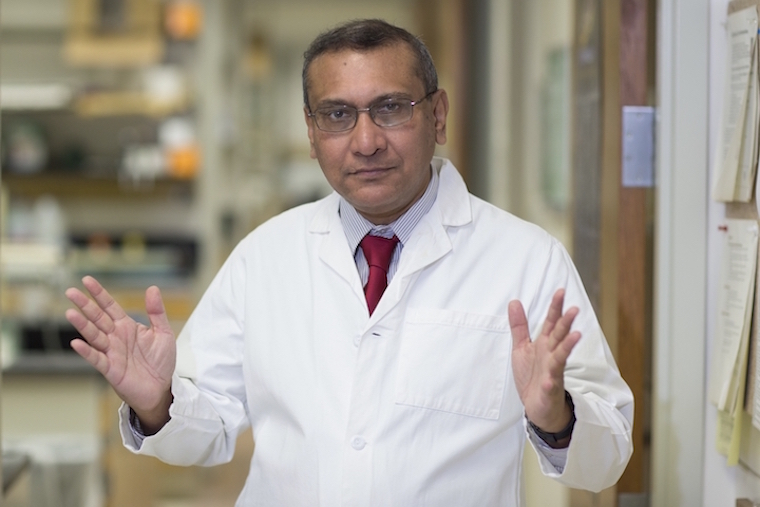We know a good bit about how HPV (human papillomavirus) causes cancer, down to a particular protein it makes to stop healthy cells’ natural ability to prevent tumors. Scientists have tried for years to find a way to block that protein, but with little luck. A new discovery from our Anindya Dutta, PhD, gives them a promising new target for developing treatments for the HPV cancers.
Dr. Dutta, chairman of our Department of Biochemistry and Molecular Genetics, and his colleagues have identified another substance that is essential for the sexually transmitted virus to cause cancer. It’s an enzyme, called USP46, that he says is “eminently druggable.”
“Because it’s an enzyme, it has a small pocket essential for its activity, and because drug companies are very good at producing small chemicals that will jam that pocket and make enzymes like USP46 inactive,” he said. “So we are very excited by this possibility that by inactivating USP46 we’ll have a way to treat HPV-caused cancers.”
HPV is responsible for nearly all cervical cancer and 95 percent of anal cancers. It is the most common sexually transmitted disease in the world, infecting more than 79 million Americans. There’s a vaccine, but Dr. Dutta notes that it’s far from universally used. “That vaccine is not available all around the world, and because of religious sensitivity, not everybody is taking it. The vaccine is expensive, so I think the human papillomavirus cancers are here to stay,” he told me. “They’re not going to disappear. So we need new therapies.”
